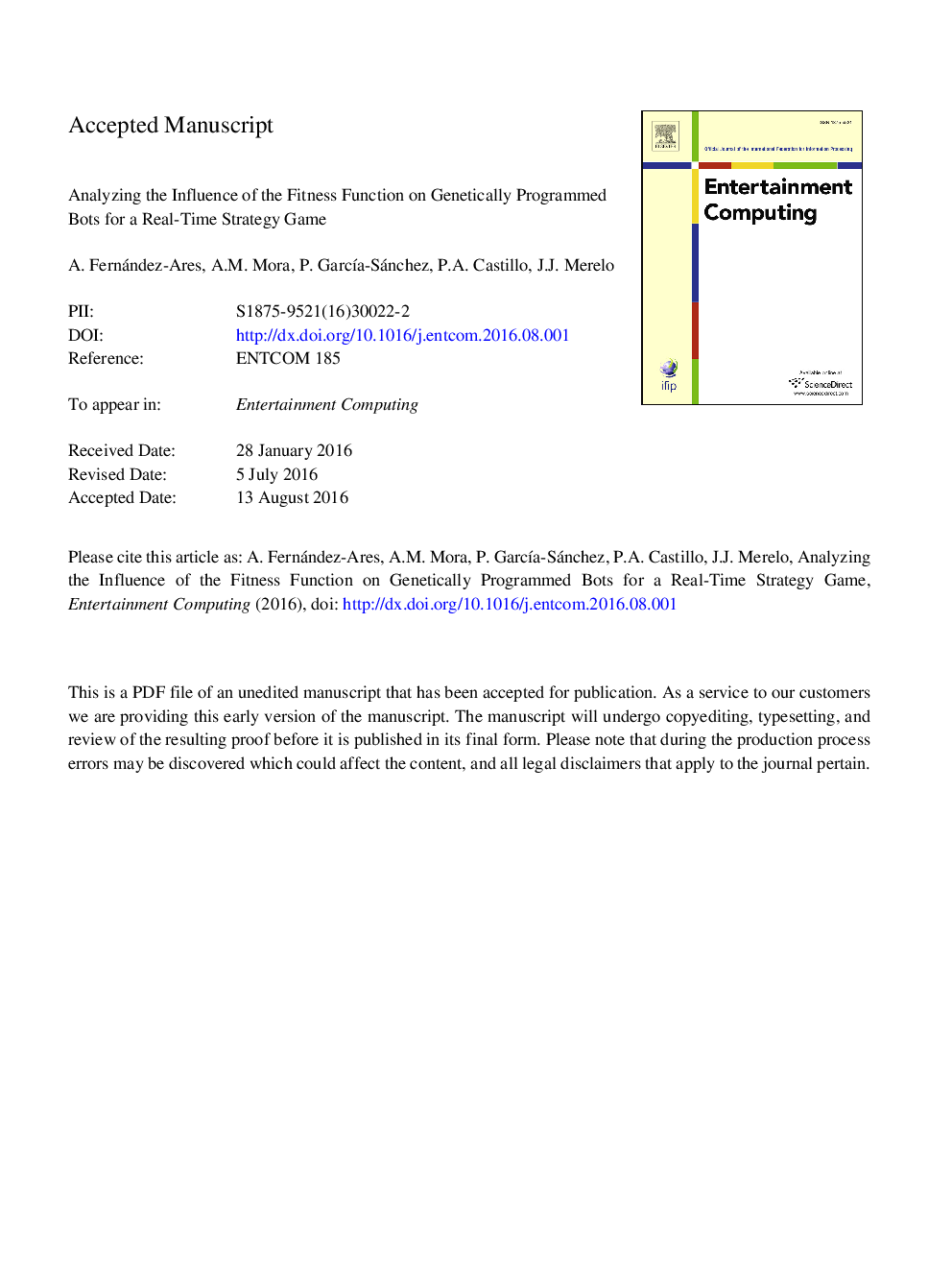| Article ID | Journal | Published Year | Pages | File Type |
|---|---|---|---|---|
| 4942882 | Entertainment Computing | 2017 | 31 Pages |
Abstract
Finding the global best strategy for an autonomous agent (bot) in a RTS game is a hard problem, mainly because the techniques applied to do this must deal with uncertainty and real-time planning in order to control the game agents. This work describes an approach applying a Genetic Programming (GP) algorithm to create the behavioural engine of bots able to play a simple RTS. Normally it is impossible to know in advance what kind of strategies will be the best in the most general case of this problem. So GP, which searches the general decision tree space, has been introduced and used successfully. However, it is not straightforward what fitness function would be the most convenient to guide the evolutionary process in order to reach the best solutions and also being less sensitive to the uncertainty present in the context of games. Thus, in this paper three different evaluation functions have been proposed, and a detailed analysis of their performance has been conducted. The paper also analyses several aspects of the obtained bots, in addition to their final performance on battles, such as the evolution of the decision trees (behavioural models) themselves, or the influence on the results of noise or uncertainty. The results show that a victory-based fitness, which prioritises the number of victories, contributes to generate better bots, on average, than other functions based on other numerical aspects of the battles, such as the number of resources gathered, or the number of units generated.
Related Topics
Physical Sciences and Engineering
Computer Science
Artificial Intelligence
Authors
A. Fernández-Ares, A.M. Mora, P. GarcÃa-Sánchez, P.A. Castillo, J.J. Merelo,
